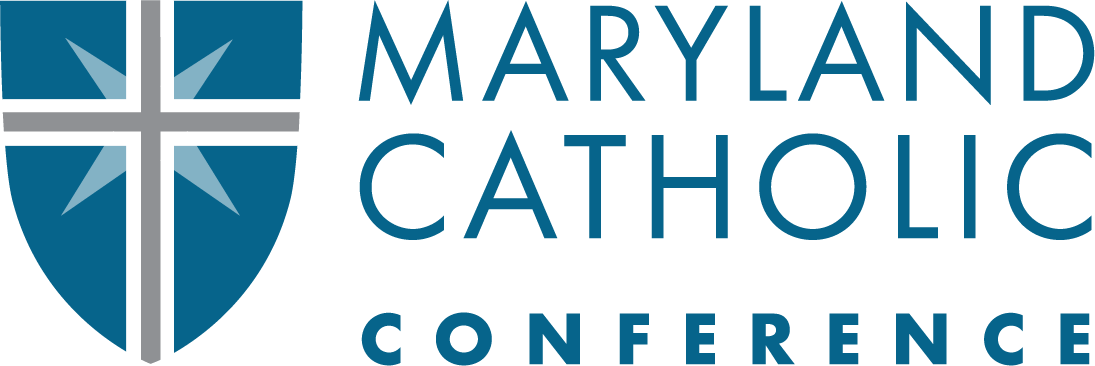Our Issues
Respect Life
“The right to life is the first and most fundamental of human rights” (Pope Francis). This principle leads Catholics to actively work for a world of greater respect for all human life and a greater commitment to justice and peace.
The Maryland Catholic Conference addresses issues that affect the inherent value and dignity of human life at all stages because, as Pope Francis has said, “All life has inestimable value; even the weakest and most vulnerable, the sick, the old, the unborn, and the poor are masterpieces of God’s creation, made in his own image, destined to live forever, and deserving of the utmost reverence and respect.”
DOES NOT SHOW
Abortion
The Maryland Catholic Conference works to foster a culture of life in Maryland by advocating for laws that assist pregnant women in need, ensure safe standards for women’s health and defend the right to life of the unborn.
- Maryland has some of the highest abortion rates in the nation due to the permissive language used in our state laws and a lack of regulation.
- 29,800 abortions were obtained in Maryland in 2017, about 82 per day (Alan Guttmacher Institute).
- Maryland is one of only three states that does not report any abortion data to the Centers for Disease Control and Prevention so these numbers are only an estimate.
Domestic Violence
Protecting the vulnerable from violence or death is a fundamental part of respect for life.
Domestic violence, also known as intimate partner violence refers to the physical, sexual, or psychological harm by a current or former partner or spouse and includes teen dating relationships.
The CDC reports about 1 in 4 women and 1 in 10 men will be victims of intimate partner violence. Domestic violence affects the whole family, including children.
Faith communities are called to offer hope, help, and healing to all harmed by domestic abuse and violence. The Maryland Catholic Conference works closely with state legislators to prevent and provide for all victims of domestic violence. Among the legislative initiatives on which the Conference has successfully engaged:
- Laura and Reid’s Law: fetal homicide law that adds 10 years to a sentence for killing a pregnant woman
- Rape Survivor Family Protection Act: prevents rapists from suing for child custody or visitation
- Housing for homeless domestic violence victims and veterans.
Physician Assisted Suicide
The Maryland Catholic Conference opposes physician assisted suicide because it seeks to legalize the intentional taking of human life.
Our parish resources — videos, bulletin/Flocknote announcements, homily helps, social media graphics and more — will help individuals, groups and parish communities learn more about this threat to the aging, ill and vulnerable.
Disabilities
Approximately 22% of Maryland residents have disabilities such as blindness, deafness, or a physical, mental, intellectual or developmental disability (CDC).
The Catholic Church calls for the defense of rights “that enable individuals with disabilities to achieve the fullest measure of personal development [possible].” (Pastoral Statement of US Catholic Bishops on Persons with Disabilities)
People with disabilities have at times experienced unjust discrimination, been targeted for abortion and denied ordinary medical procedures. Respect for life should ensure the just treatment and inclusion of all people.
The Maryland Catholic Conference advocates for policies that uphold the right to life, provide equitable medical treatment and enable individuals with a disability to fully live their lives. Among the legislative initiatives on which we have successfully engaged:
- Codifying the Temporary Disability Assistance Program
Increasing funding for disabled housing and assistance programs - Requiring up-to-date information about Down syndrome be available for health providers who give a prenatal or postnatal diagnosis of Trisomy 21
- Instituting pilot programs in higher education that provide more inclusion for persons with disabilities.
Human Trafficking
As people of faith, the grave injustice of human trafficking cries out for a response.
As our Maryland bishops remind us: “The Gospel calls us to break this yoke of modern-day slavery by raising awareness about the scope of this problem and doing all that we can as Catholics to recognize, set free, embrace and empower our brothers and sisters who are victims of human trafficking.”
Sex and labor trafficking occur when a trafficker uses force, fraud or coercion to control another person for the purpose of engaging in commercial sex acts or performing labor against his/her will. Any child under the age of 18 engaged in commercial sexual acts is a trafficked child.
Anyone can be a victim (women and men, children and adults). At highest risk are vulnerable young people who are runaways, homeless, impoverished, undocumented immigrants, or have a history of experiencing domestic violence, abuse, neglect, addictions, foster care or juvenile justice systems.
The Maryland Catholic Conference is a member of the Coalition of Catholic Organizations Against Human Trafficking.
Pregnancy Support
In conjunction with the Church’s teaching on abortion, the Conference supports policies that assist women throughout their pregnancies and make it easier for them to choose life.
The Maryland Catholic Conference works to promote policies that support parents facing a difficult prenatal diagnosis and life-affirming care for children with life-limiting diagnoses.
Among legislative initiatives on which the Conference has successfully engaged:
- Special health insurance enrollment period for pregnancy
- Grants for maternal and infant mortality, prenatal and infant support
- Information about pregnancy, including foster care, kinship care, adoption, and pregnancy and parenting resources for female inmates
- Banning shackling of pregnant women and solitary confinement of all women in prison
- Diaper-changing tables required in new public buildings
- State employees must be given time and space to breastfeed
- Increase in childcare for low-income women in state budget.
Visit Helping Hope Bloom for resources and ways you can help.
